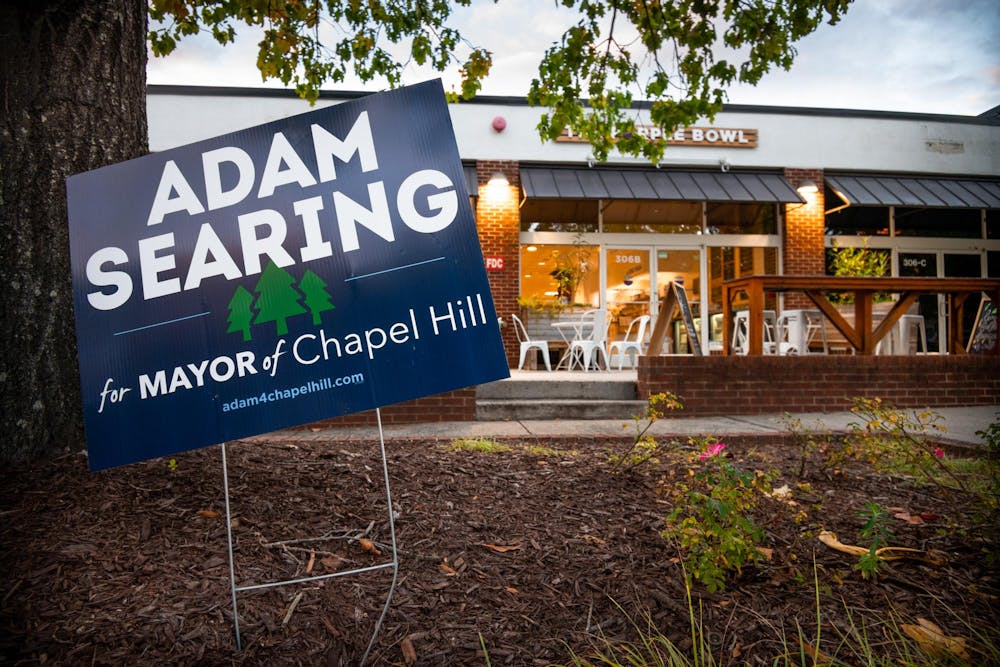Many Chapel Hill residents received a mailer advertising Adam Searing's campaign for mayor — which broke state campaign finance law by not including a clear disclosure of who paid for the print media.
Print media includes any printed communication from billboards to mass mailings. Those found intentionally in violation of the law are subject to a criminal referral for a class 2 misdemeanor, which carries a maximum sentence of 60 days in jail and a fine of $1,000.
Searing said the lack of a disclosure was an "editing error." He said his campaign intended to include the disclosure and that it was "inadvertently" left off.
These disclosures are required to include the phrase "Paid for by," followed by the name of the candidate, committee or other group or individual that sponsored the advertisement. The Searing mailer included no indication of who paid for it, though there was a mark suggesting postage fees had been paid.
"I made the final check, so it's my mistake," Searing said. "I’ve confirmed our 'Paid for' designation is on all our other printed materials and is included in all our other upcoming mailers."
Pre-election campaign finance filings with the N.C. State Board of Elections should include expenditures for the mailer under Searing's campaign committee. The pre-election filing period ended on Monday and is due to the NCSBE by Oct. 30.
Nondisclosure cases rarely result in a criminal referral, NCSBE Public Information Director Patrick Gannon said.
Instead, most are resolved through an expedited complaints process through the NCSBE.
If the NCSBE receives a complaint about the mailer — which Gannon was unable to confirm has happened in this case — board staff will determine if a violation has been committed and if there is sufficient evidence of intentionality. If they decide there is not enough evidence to prove the violation was intentional, board staff will work with the candidate's committee to take corrective action.




